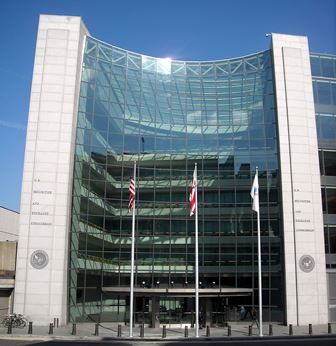Three not-so-little things hit my radar Monday morning.
Last Thursday, you were all shocked (not) to have to consider the possibility that peeps in Congress would ever break a law, let alone a law they made to stop themselves from breaking laws.
Alas, it may have happened. I say "may" because we may never know if the perps - um, I mean, peeps - in Congress are still making money by dishing out dirt on legislation they're brewing up, this time to traders who profited from leaky pipes in the Senate or House.
While I like to beat on the executive branch for their various foibles, this time I admire their moxie for trying to make a case here.
I'm going to tell you what the feds and the courts are trying to do here. I expect a full-on, separation-of-powers battle royale.
Here's how it could go down...
Constitutional Showdown The U.S. Securities and Exchange Commission (SEC) is concerned it may never know either. That's why it went to federal court June 20 seeking to enforce subpoenas on Congress.
The U.S. Securities and Exchange Commission (SEC) is concerned it may never know either. That's why it went to federal court June 20 seeking to enforce subpoenas on Congress.
Lawyers for targets in the House said the SEC's subpoenas were "repugnant to public policy," vague and overly broad. Being House lawyers, they argued that constitutional protections allow them to ignore the SEC requests.
That's why last Friday the SEC filed a lawsuit in the Southern District of New York - Wall Street's home court - to compel the House Committee on Ways and Means and a top House aide to turn over documents and information in the case.
The executive agencies accuse a top Senate aide on healthcare matters of "predicting" in an e-mail to Height Securities that some Medicare-related regulations were moving through Congress that would move some insurance stocks.
The court asked lawyers for the House and a committee aide, Brian Sutter, to explain why they refused to comply with the subpoenas. They have to respond by June 26 and appear at a July 1 hearing on the matter.
Like I said recently, this is going to turn into some kind of constitutional fight on account of Congress always hiding their grime and crime from "unwarranted investigations" by the executive branch.
In a Wall Street Journal article on June 20, former House counsel Michael Stern said, "It's not unheard of for an agency to serve a subpoena to Congress, but for an agency to sue is - if not unprecedented - at least very rare. It shows that there is a serious conflict; the SEC really wants the information and the House really wants it protected."
We'll all be watching.
Big banks are at it again in this next scandal - but will anything ever change?
French FarceSpeaking of separation of powers, money being power, a group of federal, Manhattan, and New York state regulatory and law enforcement agencies want to garner $8 billion to $9 billion in cash from giant French bank BNP Paribas for breaking various laws about dealing with countries blacklisted by the United States.
Initially, BNP Paribas offered to pay $1 billion and bake some quiches. The agencies met this generous offer with a "non merci" and a $16 billion bid.
It's the same as it ever was. The regulators will take some profits from the bank's treasury, but even though the bank will likely plead guilty to some criminal charges, it probably won't lose any of its freedoms.
It's just mind-blowing to me that institutions and people commit and even admit to financial crimes... and then pay up - but no individual is ever to blame.
IRS Can't Find HomeworkLastly, in what would be comical if it wasn't so disgustingly tragic, muckety-mucks at the Internal Revenue Service have told congressional committees - to their faces - that the smoking-gun e-mails from the agency's Tea Party scandal are flat-out missing.
Imagine if you or I told the IRS: "Sorry about that information that you want - it just disappeared from my computer, so I guess I don't have to pay you that extra money you're trying to legally extort from me."
IRS Commissioner John Koskinen told the House Committee on Ways and Means that the e-mails to and from intrepid IRS liar Lois Lerner, which may have shown that the IRS targeted conservative groups, just "disappeared."
The IRS has been paying a firm named Sonasoft since 2005 to do something for it. Can you imagine what that is?
According to its website, Sonasoft "archives all e-mail content and so reduces the risk of non-compliance with legal, regulatory, and other obligations to preserve critical business content."
No maybes about it... the House needs to subpoena Sonasoft before someone over there just "disappears."
Lying to Congress is a crime. Let's see where this goes.
Guess I'll be audited for sure now.
More from Shah Gilani: Dark pools and high-frequency trading are manipulative schemes run amok, and now Barclays has been charged with fraud in how it markets its dark pool. Here's what else Barclays did - and what these pervasive dark pools could potentially do to U.S. capital markets...
No comments:
Post a Comment